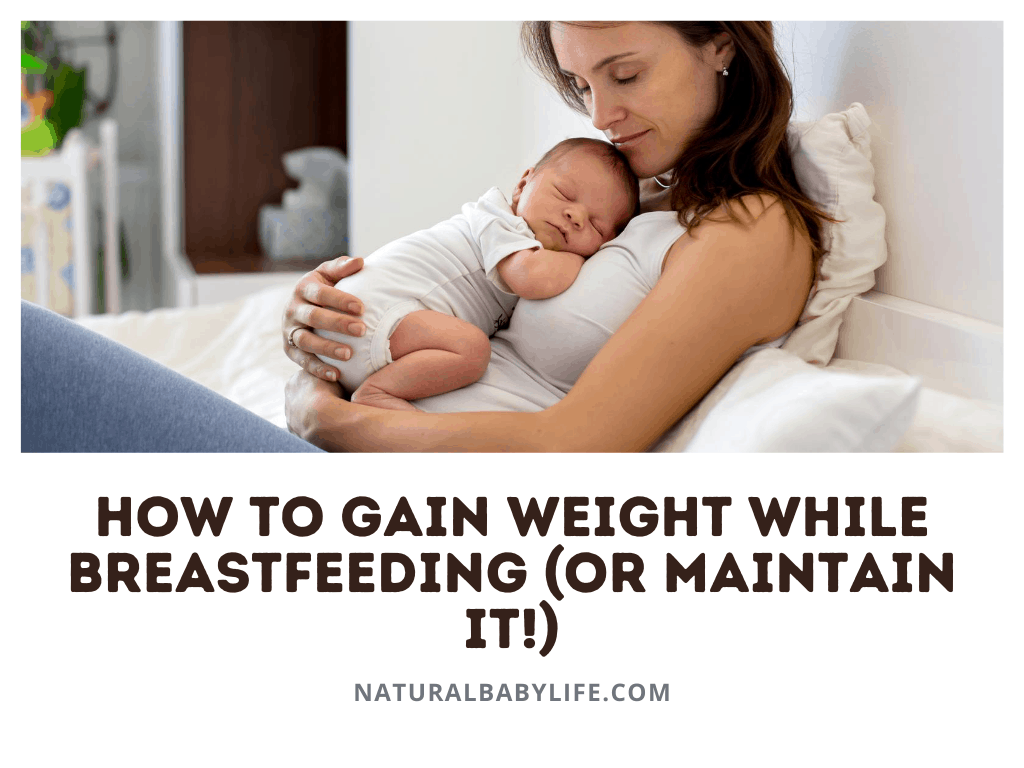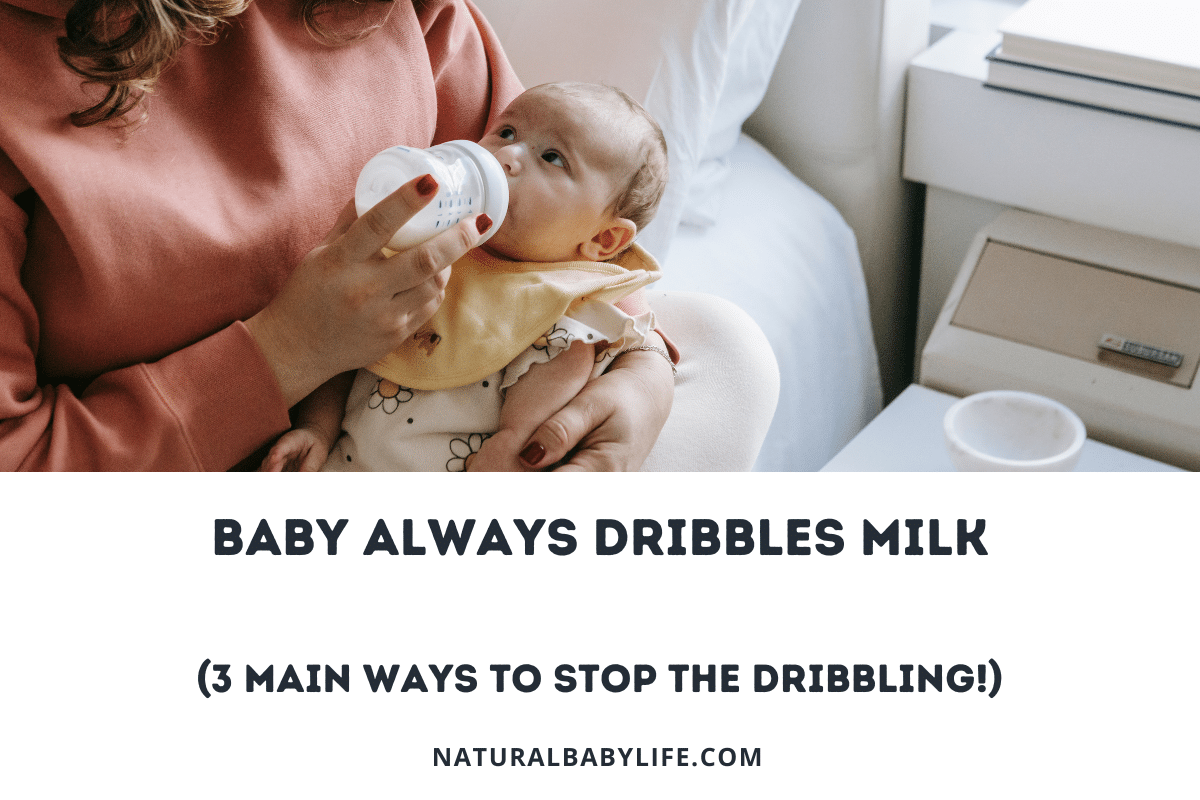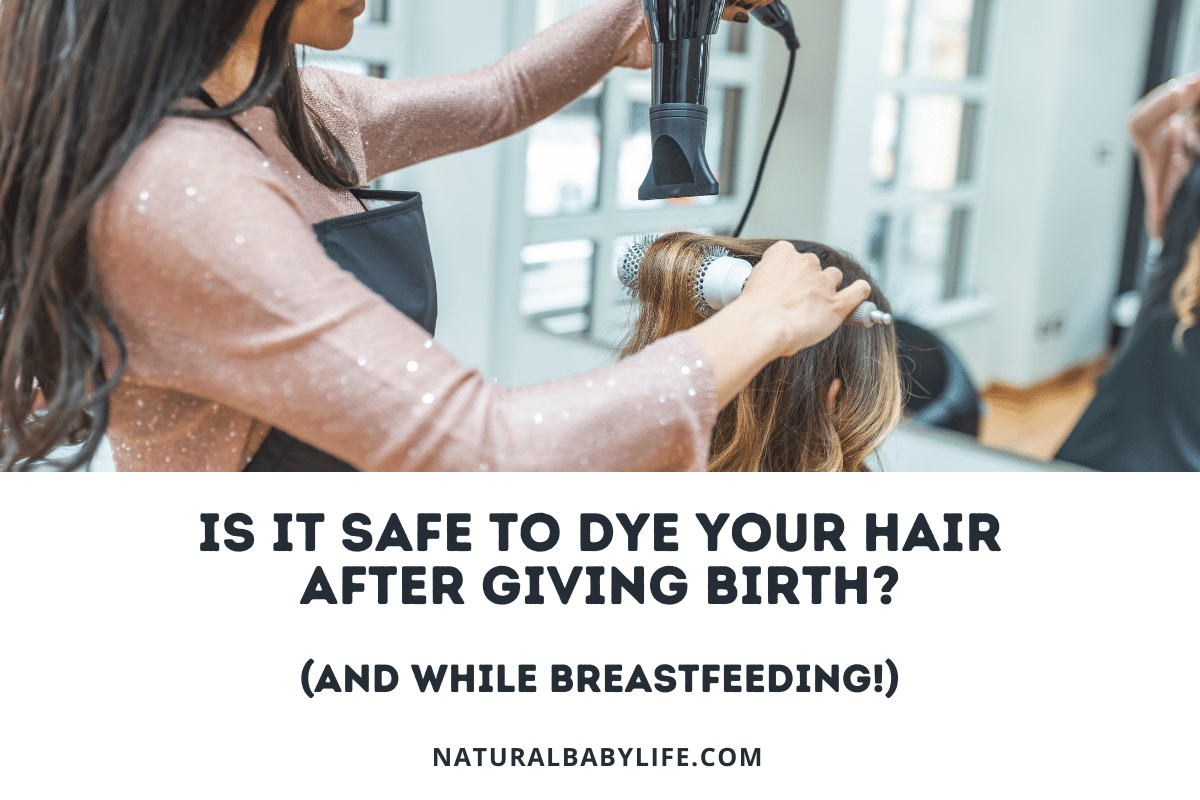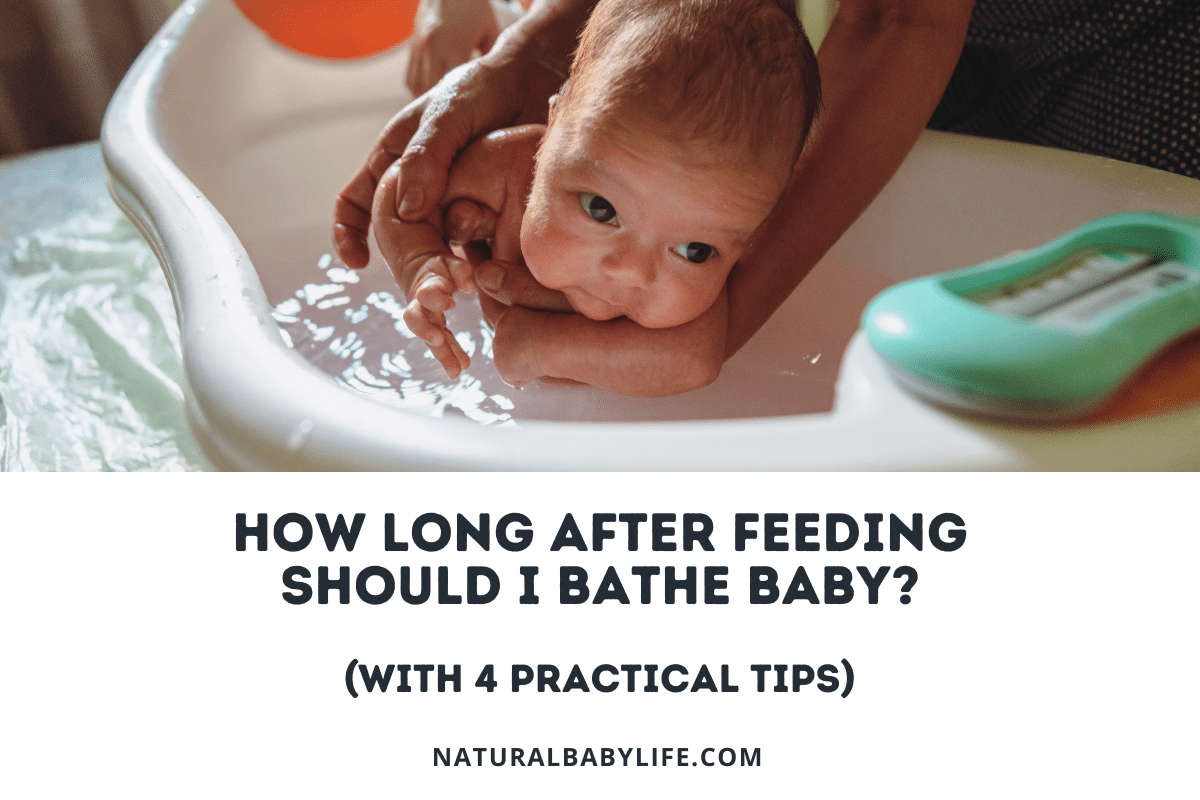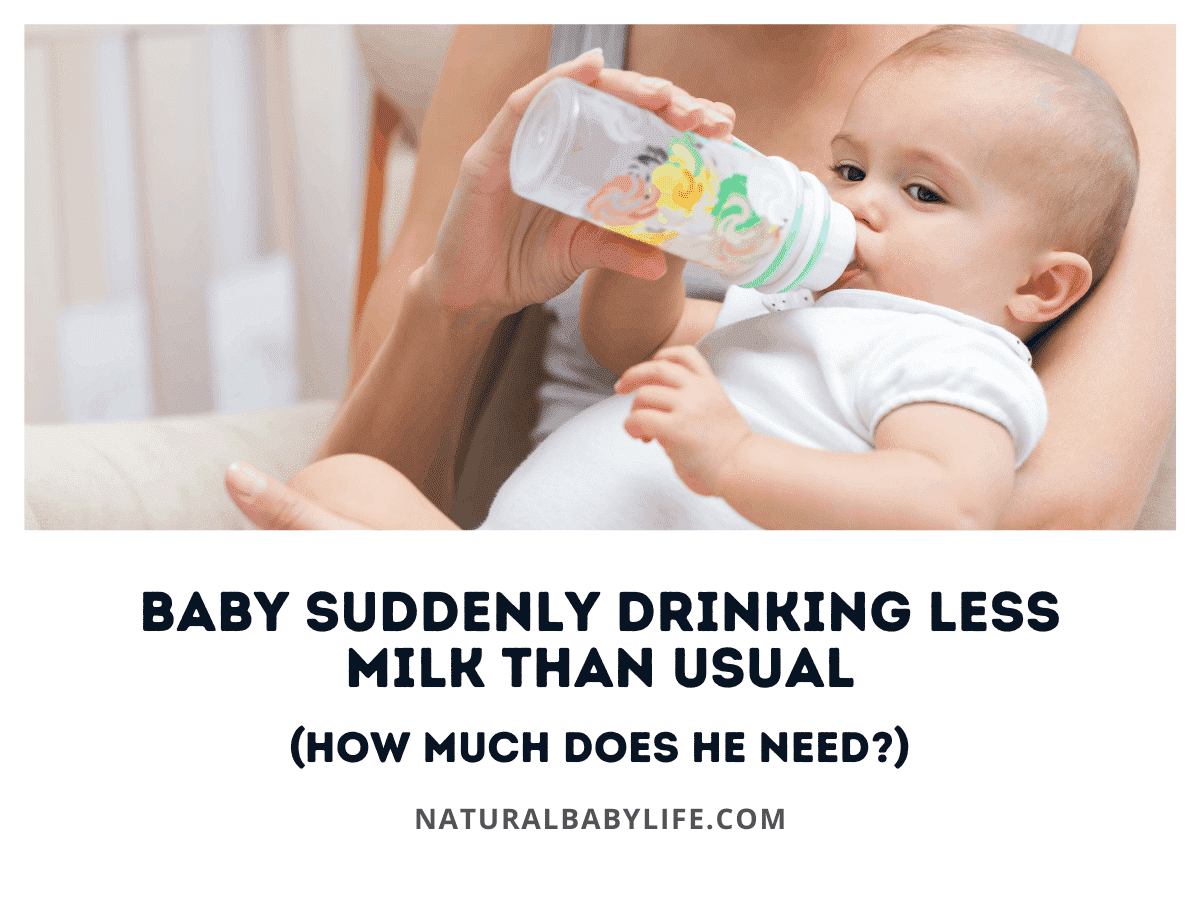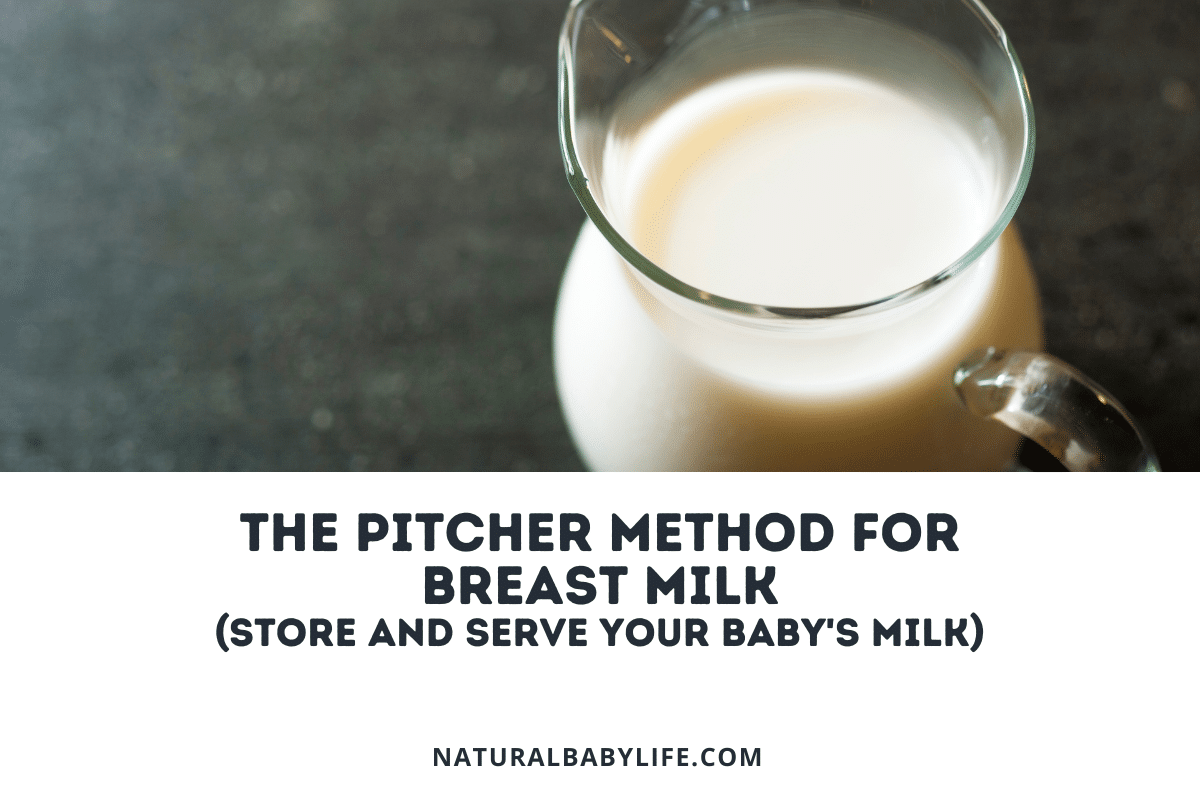When you’re a breastfeeding mom, taking care of your body doesn’t just affect you anymore. Your physical health, including what you eat and drink, also affects your baby. Since breastfeeding does burn quite a few calories, many women actually lose weight during the process. But losing too much weight can be harmful to both you and your baby.
To gain weight while breastfeeding, add 500 calories to your diet each day to gain about 1 pound per week (or prevent you from losing a pound each week). Breastfeeding requires your body to use up a lot of energy and nutrients to produce breastmilk so it is crucial to maintain a healthy diet and weight to support you and your baby.
If you do need to gain or maintain weight as a nursing mom, keep reading to hear our best tips.
Table of Contents
Why am I losing weight while breastfeeding?
When you first give birth, there are certainly a lot of changes your body goes through. Most women start to lose weight as soon as they have a baby especially since many women retain fluid during pregnancy. It’s possible for ten or more pounds of your overall weight to be water weight that you’ll lose as soon as the swelling goes down.
Losing weight as soon as your baby is born isn’t necessarily a bad thing and it can even be a positive thing if you’re losing weight in a healthy way. However, you don’t want to cut back on calories too early or keep yourself from getting all the nutrients you need. Especially as a breastfeeding mother, it’s important to make sure you maintain a healthy weight and that you’re taking care of your body.
Nursing moms burn about 500 extra calories a day, just from breastfeeding. In many cases, a nursing mom may also lose weight quicker simply because she’s watching what she eats. Since a mom who just had a baby and is feeding her child is encouraged to eat a healthy diet, that could also be a contributing factor in her weight loss.
When you’re recovering from birth and have a new baby at home, it can be pretty challenging to take care of yourself. During the newborn phase, most moms get very little sleep, they’re hormonal and they may be dealing with extra stress or even postpartum depression. The combination of these particular challenges means they may not have an appetite or simply forget to eat. They also might not drink enough water, making them feel fatigued and dehydrated.
Especially in the beginning stage of breastfeeding, in order for you to produce enough milk for your baby, it’s important to eat healthily and stay hydrated. In a list of four factors that can decrease your milk supply, stress was named the number one factor. Eating or drinking too little also made the list which would also lead to potentially dangerous weight loss.
If you continue to breastfeed for a year or longer, your body’s needs will change over time. A nursing toddler typically won’t breastfeed as frequently as a newborn, so you may be burning less calories than you previously were. Breastmilk will also no longer be your baby’s main source of nutrients, so you’ll find that your milk supply will decrease naturally as your baby eats more solid foods.
The one thing that doesn’t change however, is the fact that what you eat and drink will still affect your baby. Whether your breastfed baby is two months old or two years old, it’s still important for you to stay hydrated, eat healthy as often as you can and take care of your physical and emotional health.
Do breastfeeding moms lose weight faster?
Many moms are skeptical, but breastfeeding can in fact help you lose weight after having a baby. The reason you lose weight when breastfeeding is while you’re pregnant, fat cells are stored in your body. When you breastfeed your baby, you use those fat cells and the calories that you consume to produce milk and nourishment for your newborn baby.
This is also one of the reasons why it’s so important that you consume enough calories while you’re breastfeeding. It’s actually recommended that breastfeeding moms consume an extra 300-500 calories a day. Even with the extra calories, many moms still lose weight faster than moms who aren’t breastfeeding.
However, when it comes to losing weight while nursing a baby, the outcome isn’t the same for everyone. While many women do lose weight while breastfeeding, some notice that their weight stays the same and others may even gain weight. Although this weight gain likely isn’t related to breastfeeding, it’s still important to note that not every nursing mom does lose weight quickly after giving birth.
What happens if you don’t eat enough while breastfeeding?
Just like when you’re pregnant, eating enough while you’re breastfeeding is extremely important for both your health and your baby’s health. Since your breast milk production is fueled by the calories you consume, not eating enough can have a lot of risk for a nursing mom.
What makes breast milk so incredible is it contains all the nutrients your baby needs to survive. Since what you consume directly affects your breastmilk, if you aren’t consuming sufficient nutrients yourself, it will affect the quality of the milk you produce. Not eating enough or drinking enough can also directly affect your milk supply. Without proper nutrition and hydration, it’s more difficult for your body to produce breast milk and you may not be able to provide the nutrients your baby needs.
The best way to gain weight while breastfeeding
Losing weight too quickly, especially within the first few months of breastfeeding, can be harmful for both you and your baby. But considering the number of calories you burn while you’re feeding your baby, it can be difficult to gain weight in a healthy way as well.
There are several different ways you can gain weight while you’re nursing your baby. The most effective way to gain weight is simply adding additional calories into your diet. With that said, it’s best to add in extra healthy foods, such as vegetables and lean proteins so that you are getting important vitamins, minerals, and other nutrients into your diet instead of empty calories.
Breastfeeding moms should already be consuming extra calories each day, but if you’re still not maintaining your weight, you may need to add in an additional amount. If you’re unsure of how many calories you should be consuming, it’s always a good idea to talk with your doctor or a nutritionist so they can help you figure out what works best for your body.
Can you gain weight while breastfeeding?
Even though breastfeeding moms do burn up to 500 calories a day just by feeding their babies, it’s still possible for you to gain weight. Every woman’s body is different and some women may lose weight faster than others. Some women naturally maintain a healthy weight after having a baby, while others have to work harder to either lose or gain weight.
At the end of the day, it really just comes down to caloric intake, your natural metabolism, and how much breastmilk your baby is drinking. You should also note that because your hormones can be all over the place right after birth you might find that your metabolism isn’t exactly the same as it was before birth.
No matter what your body does naturally, what’s most important is that you take care of yourself both physically and mentally.
What should I eat to gain weight while breastfeeding?
When you’re trying to gain weight, there are many foods out there that can help you reach your goals. Adding foods with healthy fats is a good way to increase the amount of calories you’re eating. Healthy fats are also great for your baby’s health.
Here are some of the best foods that you can eat to gain weight while breastfeeding along with serving size and calorie content:
| Type of food | Serving Size | Calorie Content |
|---|---|---|
| Milk (whole) | 1 cup | 149 calories |
| Rice | 1 cup | 190 calories |
| Peanut butter | 2 tablespoons | 190 calories |
| Almonds | 1 ounce | 170 calories |
| Steak (sirloin) | 4 ounces | 200 calories |
| Potatoes | Medium potato (5.3 ounces) | 110 calories |
| Salmon | 6 ounces | 270 calories |
| Protein powder (whey) | 1 scoop (30 grams) | 140 calories |
| Avocados | Medium avocado (150g) | 234 calories |
| Dark chocolate | 50 grams | 280 calories |
| Cheese | 2 ounces | 228 calories |
| Eggs | 1 large | 71 calories |
| Full-fat yogurt | 1 cup | 220 calories |
| Olive oil | 1 tbsp | 119 calories |
Foods that are more nutrient-dense are also good to eat when you’re trying to gain weight. Nutrient-dense foods such as whole-grain bread, beans, and certain types of fish, are full of vitamins and minerals and will also help you reach your goals for daily caloric intake. Keeping a food diary or journal, whether it’s on paper or through an app, is a helpful way to track how many calories you’re eating each day.
How to maintain weight during breastfeeding
If you’ve already reached the desired weight that is healthiest for you, you may be looking for ways to maintain your weight. The best way to maintain your weight while breastfeeding is to consume the extra 300-500 calories daily that are recommended.
Keep in mind that an extra 500 calories per day will lead to either a 1 pound gain in weight or it will offset 1 pound of weight loss if you are losing weight each week. With a little quick math, you’ll be able to figure out how much more you need to be eating each day to get your desired results. Note that this number will also likely change over time!
If you find yourself losing weight too quickly, you may not be consuming enough calories. Keep in mind that the calories you burn while feeding your infant are enough to replace a whole meal.
How much weight do breasts add when breastfeeding?
It’s pretty normal for a breastfeeding mom to go up a couple of bra sizes when she has a baby. A lactating woman’s breast can actually be up to 35% heavier than the size it was before milk was produced. Although there isn’t a specific number of pounds since every woman is different, a nursing mom’s breasts can absolutely add a few pounds or more to the scale.
The number on the scale isn’t the most important factor in determining your health while breastfeeding. It’s a good tool to use to keep track of your progress if you’re working to gain or maintain weight. However, remember to listen to your body and eat mostly foods that you know will provide sufficient nutrients for you and your baby.

